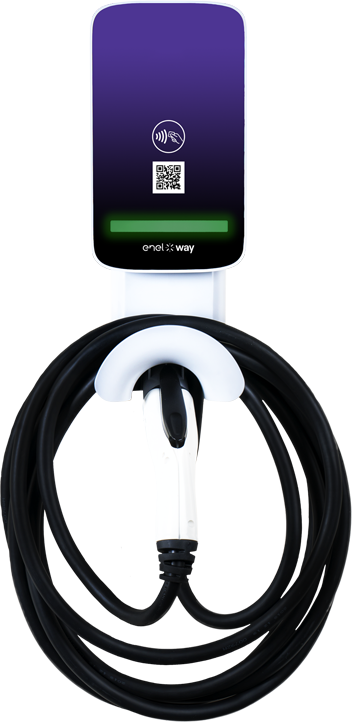State electric installed an EV charging outlet including panel work and outlet install. Crew were very professional throughout. Worked with Todd on some changes and he went above and beyond to make sure everything was great. Appreciate the professional attitude throughout.
- Osama Nerok
State Electric is a top notch company. They did the installation of our home charger and were amazing. All of the staff were kind, responsive and a breeze to work with.
-Lori Heinz
I am so impressed by how courteous and professional this entire process has been. We had a lot of electrical work to be done and everyone was hardworking, respectful and efficient. I highly recommend them.
- Less (Residential)
Yesterday’s install went great. I am beyond impressed with the electrician’s professionalism. He explained everything he was doing in detail, provided a report and pictures for the inspector, AND cleaned up afterwards. I’ve had a lot of work done on my home over the last year and this was by far the smoothest item on the list.
- Blake C. (Residential)
Your guys were great, and I appreciate it! Importantly, the building inspector commented that the work he has seen that State has been doing has been top notch --- really appreciates the photos of the work performed. DTE meter installer, too, commented on how simple his job was as the guys did it all. Good luck and thanks!
- Rick S. (Residential customer: EV charger installation)
First off my city inspector couldn’t stop raving about the quality of work performed installing my two EV chargers, in fact he asked for their card. My personal experience could not have been better, great guys with an attention to detail that I appreciate. Pre install they answered all my questions promptly and completely. When finished they went over my new chargers with me and answered all my questions completely. Would definitely use them again for any electrical needs.
- Andrew Ronnisch
They sent Derek and Aedan out two journeymen. They were extremely efficient and knew exactly what they were doing. They managed to solve what appeared to be a complex problem and make it a simple solution and a short I’m out of time. They were in my home for less than 30 minutes. I had a master electrician out prior I wanted to rip my ceiling out in order to try to solve the problem. The quote was in the thousands. These two gentlemen knew what they were doing And did not gouge me. I have respect for true professionals. I highly recommend State Electric
- Maria Polowniak
We had State Electric out after another electric company had failed to diagnose a problem and tried to up-sell us into an unneeded workaround. Derek showed up and found the issue quickly and resolved it no problem no unnecessary cost involved. Highly recommend!
- Naftali Newman
If you need a ev charger, call no one else. Very knowledgeable and professional
- Kevin Germain
These guys did a great job. Easy quote process and scheduling of work. They showed up the day of the job, and did an excellent job. Very happy with the experience and will definitely use them again.
- Todd Pronger
Very nice folks. The estimate they gave me was half the price that others quoted. Thanks to Kirt Lobbestrel for doing the work... great job. Thanks to Anna Drake for helping me out when I had questions.
- Jackie Osbourn
I am so impressed by how courteous and professional this entire process has been. We had a lot of electrical work to be done and everyone was hardworking, respectful and efficient. I highly recommend them.
- Amy Childers
Duane and his staff have been a valuable part of my success over the last several years as a project partner on most of my developments. They have been a worry free turn key solution to all of my electrical and low voltage needs.
- Ernie Parison
Not every subcontractor you hire performs well enough to call a partner...State Electric is the one that I consider my partner. I can count on their performance, always, so I can worry about everyone else's. We've been working with Duane, Kurt, Eddie, and the office for 2.5 years now and hopefully more.
- Eric Bastian
They have amazing service and creative staff from the owner down. Very pleasant to deal with.
- Hal Franke
I would highly recommend State Electric for any electrical work needing to be completed. I hold Duane and his team in very high respect and will happily work with them whenever my company has a project in their area.
- Nicholas Paxson
They got the job done quickly at the price they quoted!
- William A. (residential EV charger install)
The installer was knowledgeable, knew what needed to be done, and was quick and neat with the installation.
- Ken L. (residential EV charger install)
Professional and efficient. Even after we received the inspection sticker from the city, State Electric came back to clear a comment from the inspector.
- Craig C. (residential EV charger install)
Great work...Arrived on time and completed the work within a couple of hours. Awaiting city inspection currently
- Surendra E. (residential EV charger install)
They were great guys who worked diligently!
- Edward W. (residential EV charger install)
Communicated clearly, efficient service, and was helpful with questions.
- Amy T. (residential EV charger install)
Knowledgeable, Friendly, and Easy to Work With.
- Christopher K. (residential EV charger install)
Professional, friendly, and courteous.
- Mark K. (residential EV charger install)
State electric installed an EV charging outlet including panel work and outlet install. Crew were very professional throughout. Worked with Todd on some changes and he went above and beyond to make sure everything was great. Appreciate the professional attitude throughout.
- Osama Nerok
State Electric is a top notch company. They did the installation of our home charger and were amazing. All of the staff were kind, responsive and a breeze to work with.
-Lori Heinz
I am so impressed by how courteous and professional this entire process has been. We had a lot of electrical work to be done and everyone was hardworking, respectful and efficient. I highly recommend them.
- Less (Residential)
Yesterday’s install went great. I am beyond impressed with the electrician’s professionalism. He explained everything he was doing in detail, provided a report and pictures for the inspector, AND cleaned up afterwards. I’ve had a lot of work done on my home over the last year and this was by far the smoothest item on the list.
- Blake C. (Residential)
Your guys were great, and I appreciate it! Importantly, the building inspector commented that the work he has seen that State has been doing has been top notch --- really appreciates the photos of the work performed. DTE meter installer, too, commented on how simple his job was as the guys did it all. Good luck and thanks!
- Rick S. (Residential customer: EV charger installation)
First off my city inspector couldn’t stop raving about the quality of work performed installing my two EV chargers, in fact he asked for their card. My personal experience could not have been better, great guys with an attention to detail that I appreciate. Pre install they answered all my questions promptly and completely. When finished they went over my new chargers with me and answered all my questions completely. Would definitely use them again for any electrical needs.
- Andrew Ronnisch
They sent Derek and Aedan out two journeymen. They were extremely efficient and knew exactly what they were doing. They managed to solve what appeared to be a complex problem and make it a simple solution and a short I’m out of time. They were in my home for less than 30 minutes. I had a master electrician out prior I wanted to rip my ceiling out in order to try to solve the problem. The quote was in the thousands. These two gentlemen knew what they were doing And did not gouge me. I have respect for true professionals. I highly recommend State Electric
- Maria Polowniak
We had State Electric out after another electric company had failed to diagnose a problem and tried to up-sell us into an unneeded workaround. Derek showed up and found the issue quickly and resolved it no problem no unnecessary cost involved. Highly recommend!
- Naftali Newman
If you need a ev charger, call no one else. Very knowledgeable and professional
- Kevin Germain
These guys did a great job. Easy quote process and scheduling of work. They showed up the day of the job, and did an excellent job. Very happy with the experience and will definitely use them again.
- Todd Pronger
Very nice folks. The estimate they gave me was half the price that others quoted. Thanks to Kirt Lobbestrel for doing the work... great job. Thanks to Anna Drake for helping me out when I had questions.
- Jackie Osbourn
I am so impressed by how courteous and professional this entire process has been. We had a lot of electrical work to be done and everyone was hardworking, respectful and efficient. I highly recommend them.
- Amy Childers
Duane and his staff have been a valuable part of my success over the last several years as a project partner on most of my developments. They have been a worry free turn key solution to all of my electrical and low voltage needs.
- Ernie Parison
Not every subcontractor you hire performs well enough to call a partner...State Electric is the one that I consider my partner. I can count on their performance, always, so I can worry about everyone else's. We've been working with Duane, Kurt, Eddie, and the office for 2.5 years now and hopefully more.
- Eric Bastian
They have amazing service and creative staff from the owner down. Very pleasant to deal with.
- Hal Franke
I would highly recommend State Electric for any electrical work needing to be completed. I hold Duane and his team in very high respect and will happily work with them whenever my company has a project in their area.
- Nicholas Paxson
They got the job done quickly at the price they quoted!
- William A. (residential EV charger install)
The installer was knowledgeable, knew what needed to be done, and was quick and neat with the installation.
- Ken L. (residential EV charger install)
Professional and efficient. Even after we received the inspection sticker from the city, State Electric came back to clear a comment from the inspector.
- Craig C. (residential EV charger install)
Great work...Arrived on time and completed the work within a couple of hours. Awaiting city inspection currently
- Surendra E. (residential EV charger install)
They were great guys who worked diligently!
- Edward W. (residential EV charger install)
Communicated clearly, efficient service, and was helpful with questions.
- Amy T. (residential EV charger install)
Knowledgeable, Friendly, and Easy to Work With.
- Christopher K. (residential EV charger install)
Professional, friendly, and courteous.
- Mark K. (residential EV charger install)
State electric installed an EV charging outlet including panel work and outlet install. Crew were very professional throughout. Worked with Todd on some changes and he went above and beyond to make sure everything was great. Appreciate the professional attitude throughout.
- Osama Nerok

